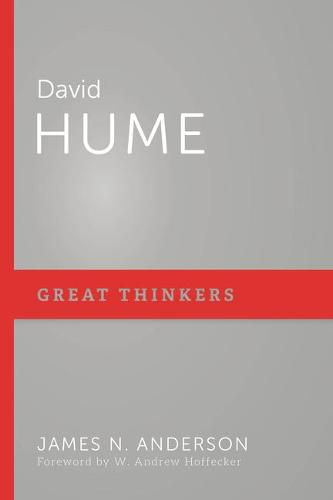Readings Newsletter
Become a Readings Member to make your shopping experience even easier.
Sign in or sign up for free!
You’re not far away from qualifying for FREE standard shipping within Australia
You’ve qualified for FREE standard shipping within Australia
The cart is loading…






Scottish philosopher David Hume has had an enormous influence on Western civilization. He is a prominent early figure among philosophers who seek a naturalistic grounding for moral norms. In science, his so-called problem of induction has no widely accepted solution. And his forceful critique of supernaturalism undermined Western confidence in orthodox Christianity. Although he addressed a wide range of topics, Hume’s writings represent the outworking of an ambitious philosophical and scientific program to understand the world, especially human thought and action, in entirely naturalistic terms. Anderson summarizes the major points of Hume’s thought and offers a critical assessment from a distinctively Reformed perspective. He shows that Hume’s arguments, far from refuting the Christian worldview, indirectly support that worldview by exposing the self-defeating implications of naturalism.
$9.00 standard shipping within Australia
FREE standard shipping within Australia for orders over $100.00
Express & International shipping calculated at checkout
Scottish philosopher David Hume has had an enormous influence on Western civilization. He is a prominent early figure among philosophers who seek a naturalistic grounding for moral norms. In science, his so-called problem of induction has no widely accepted solution. And his forceful critique of supernaturalism undermined Western confidence in orthodox Christianity. Although he addressed a wide range of topics, Hume’s writings represent the outworking of an ambitious philosophical and scientific program to understand the world, especially human thought and action, in entirely naturalistic terms. Anderson summarizes the major points of Hume’s thought and offers a critical assessment from a distinctively Reformed perspective. He shows that Hume’s arguments, far from refuting the Christian worldview, indirectly support that worldview by exposing the self-defeating implications of naturalism.